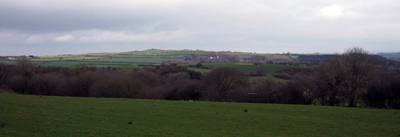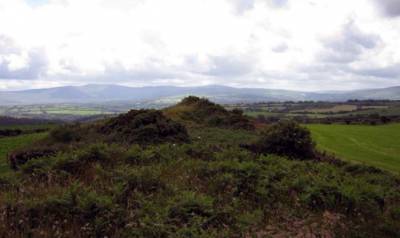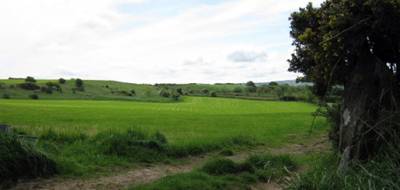
Bayvil - a parish name of probable Cambro-Latin origin, referring to the township of the beu (pagus/ hundred/ cantref) - is the location of a polyfocal, multi-period assembly complex near Nevern in south-west Wales. Its various sites of assembly are scattered across an elevated plateau within an area that, from place-name evidence, appears to have been the administrative centre of the preConquest cantref (hundred) of Cemais.

The earliest indications of assembly functions are at the site of Crugiau Cemais where the banks of a late prehistoric multivallate enclosure partially enclose Bronze Age barrows and early medieval burials. Its place-name, which means 'the barrows of Cemais', echoes the regional associations of cognate Irish place-names that denote inauguration sites.

Later assembly activities are located 1 km away around another early medieval cemetery, Caer Bayvil. Here place-names identify a hosting place on a low hill and a judicial court at a nearby barrow where the medieval manorial court may have met. The adjacent area appears to be the setting of midsummer festivals that are known from a fair charter of 1338, and from a twelfth century record of the Feast of Translation of a local post-Roman saint, Brynach, whose Life links him to the river that rises at the fair site. It may also have been the setting of Gwyl Awst / Lughnasa (Lammas) gatherings, given the dedication of a spring at the fair site to St James, who commonly Christianises Lughnasa sites.
- R. Comeau 2014: 'Bayvil in Cemais: An Early Medieval Assembly Site in South-West Wales?' Medieval Archaeology 58, 270-284
 Close
Close

